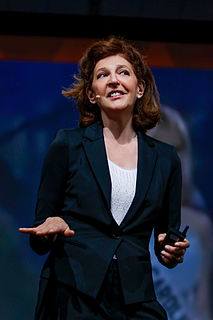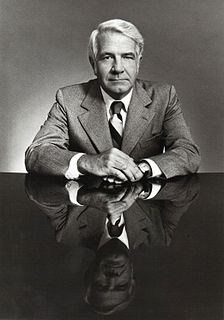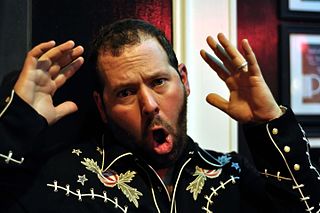Top 46 Extroverts Quotes & Sayings
Explore popular Extroverts quotes.
Last updated on April 14, 2025.
While there are relatively few extreme introverts or extroverts, most of us lean in one direction or the other. If we lean more toward introversion, we'll generally prefer less social activity than more extroverted people. One inclination is not 'better' than another, but our culture can make it seem as if extroverts have a social advantage.
Some findings reveal extroverts as more adept at reading nonverbal cues, and attribute this to the extrovert's greater interest and experience with social interactions. Another line of research using subliminal images of facial emotion found introverts to be more sensitive to the differences, and hypothesized that this may be why introverts regulate the amount of incoming social information.
As an introvert, you can be your own best friend or your worst enemy. The good news is we generally like our own company, a quality that extroverts often envy. We find comfort in solitude and know how to soothe ourselves. Even our willingness to look at ourselves critically is often helpful.But, we can go too far. We can hoard responsibility and overlook the role others play. We can kick ourselves when we're down. How many times have you felt lousy about something, only to get mad at yourself for feeling lousy?
We're told that to be great is to be bold, to be happy is to be sociable. We see ourselves as a nation of extroverts -
which means that we've lost sight of who we really are. Depending on which study you consult, one third to one half of Americans are introverts - in other words, one out of every two or three people you know.
Introverts need to trust their gut and share their ideas as powerfully as they can. This does not mean aping extroverts; ideas can be shared quietly, they can be communicated in writing, they can be packaged into highly produced lectures, they can be advanced by allies. The trick for introverts is to honor their own styles instead of allowing themselves to be swept up by prevailing norms.
Some people are introverts and if they don't have enough time for themselves, they don't feel right. And extroverts don't feel right with too much alone time. There are those who need walks in nature or they feel depressed. Your linchpin is the pin that makes the wheel go. If you lose it, the wheel falls apart.
The exaggerated dopamine sensitivity of the introvert leads one to believe that when in public, introverts, regardless of its validity, often feel to be the center of (unwanted) attention hence rarely craving attention. Extroverts, on the other hand, seem to never get enough attention. So on the flip side it seems as though the introvert is in a sense very external and the extrovert is in a sense very internal - the introvert constantly feels too much 'outerness' while the extrovert doesn't feel enough 'outerness'.
We have this idea that extroverts are better salespeople. As a result, extroverts are more likely to enter sales; extroverts are more likely to get promoted in sales jobs. But if you look at the correlation between extroversion and actual sales performance - that is, how many times the cash register actually rings - the correlation's almost zero.
When the excessively shy force themselves to be forward, they are frequently surprisingly unsubtle and overdirect and even rude: they have entered an extreme region beyond their normal personality, an area of social crime where gradations don't count; unavailable to them are the instincts and taboos that booming extroverts, who know the territory of self-advancement far better, can rely on.
Extroverts want us to have fun, because they assume we want what they want. And sometimes we do. But "fun" itself is a "bright" word, the kind of word that comes with flashing lights and an exclamation point! One of Merriam-Webster's definitions of "fun" is "violent or excited activity or argument." The very word makes me want to sit in a dimly lit room with lots of pillows-by myself.
In the first study, Grant and his colleagues analyzed data from one of the five biggest pizza chains in the United States. They discovered that the weekly profits of the stores managed by extroverts were 16 percent higher than the profits of those led by introverts—but only when the employees were passive types who tended to do their job without exercising initiative. Introverted leaders had the exact opposite results. When they worked with employees who actively tried to improve work procedures, their stores outperformed those led by extroverts by more than 14 percent.
We have this myth that extroverts are better salespeople. As a result, extroverts are more likely to enter sales; extroverts are more likely to get promoted in sales jobs. But if you look at the correlation between extroversion and actual sales performance - that is, how many times the cash register actually rings - the correlation's almost zero.
Introverts almost never cause me trouble and are usually much better at what they do than extroverts. Extroverts are too busy slapping one another on the back, team building, and making fun of introverts to get much done. Extroverts are amazed and baffled by how much some introverts get done and assume that they, the extroverts, are somehow responsible.
Whoever you are, bear in mind that appearance is not reality. Some people act like extroverts, but the effort costs them energy, authenticity, and even physical health. Others seem aloof or self-contained, but their inner landscapes are rich and full of drama. So the next time you see a person with a composed face and a soft voice, remember that inside her mind she might be solving an equation, composing a sonnet, designing a hat. She might, that is, be deploying the powers of quiet.
One might think of investment managers as astronomers and CEOs as astronauts. The two roles are radically different with distinct personality traits. Like astronomers, investment managers tend to be introverted, skeptical, and very analytical. CEOs, like astronauts, are the exact opposite, typically being extroverts, optimists, and, well, leaders.



























